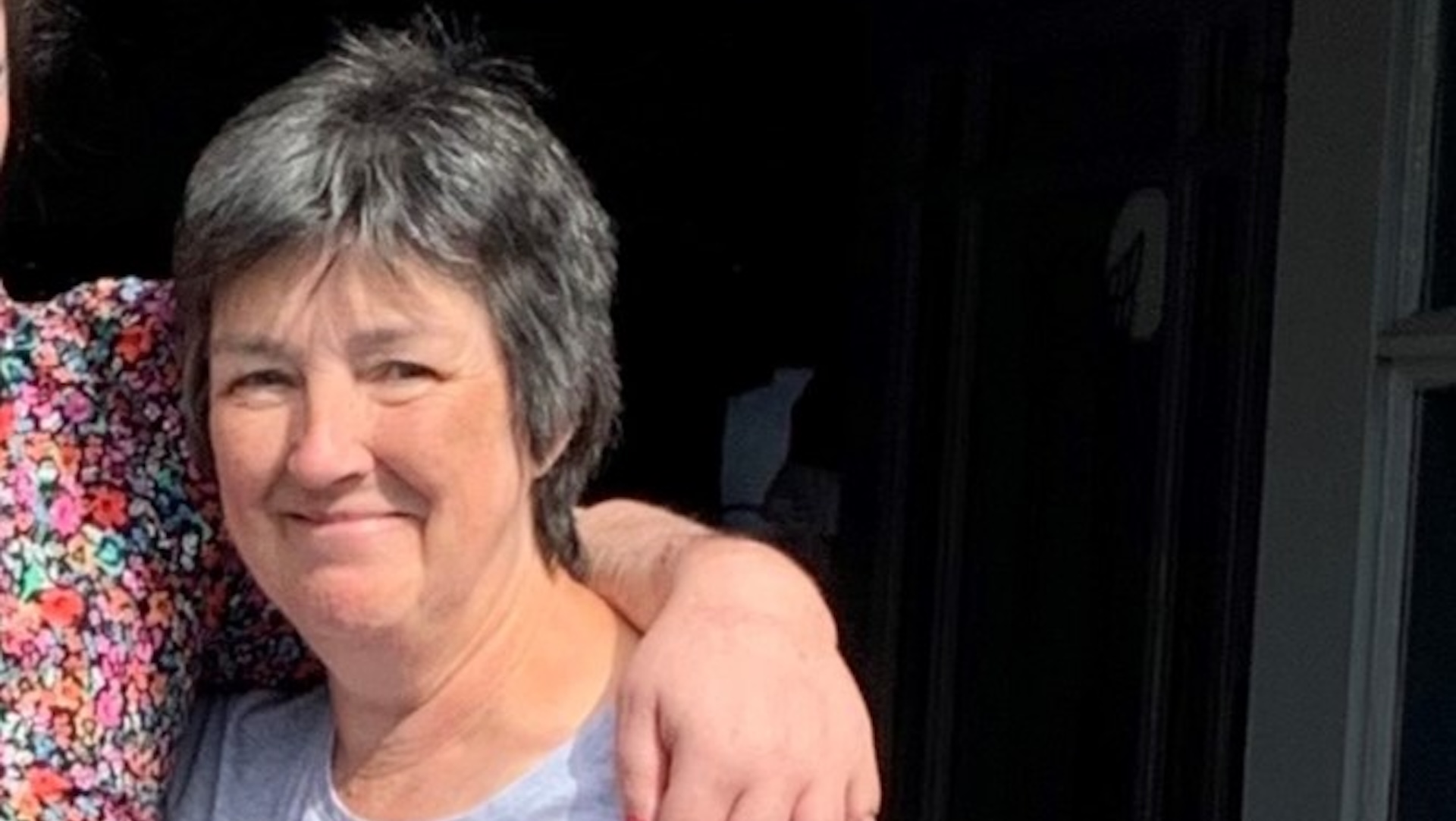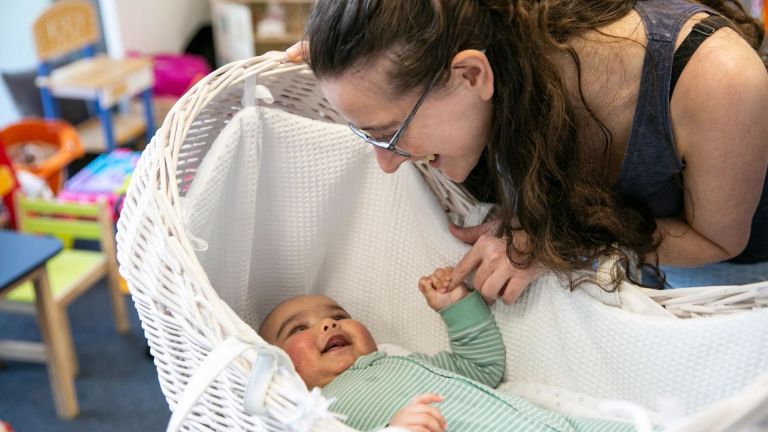The latest commitment was to reduce the number of people with a learning disability and autistic people in inpatient units by 50% by March 2024. Mencap estimates they won’t meet it until 2030 at the earliest.
Jackie O’Sullivan, acting chief executive at learning disability charity Mencap said: “These missed targets speak for themselves. They are a stark reminder of how much people with a learning disability, autistic people, and their families have been failed by governments over more than a decade.
“There has been some progress transforming care since the horrifying abuse scandal at Winterbourne View Hospital was exposed nearly 13 years ago, but still far too many people remain stuck in mental health hospitals when they don’t need to be there.”
Sign Mencap’s petition to end the detention of people with a learning disability here.
Rose, whose name has been changed to protect her identity, has a rare genetic condition which affects her development. It causes overgrowth in childhood, learning disabilities and developmental delays.
“She’s very loving and very caring and she’s got lots of good humour but she also gets very frustrated with life because she doesn’t understand. She needed me around all the time growing up to help her understand what was going on.
“She found her teen years a lot more difficult than actually I realised she was finding them. She found the teen years difficult. She didn’t have friends. A lot of the other girls in her class at school were very supportive.
“They liked her but she couldn’t talk to them about the things they talked about. She couldn’t do the things that they were doing. They were going to parties and she just couldn’t manage any of that.”
The support offered by social services was “very patchy” when Rose was growing up, and Sarah felt they were constantly fighting for support. She went to an independent specialist college for young people with learning disabilities in her late teen years but, when that came to an end, the family were left stuck.
“She needed full-on time and I wasn’t able to give that to her,” Sarah recalls. “I didn’t have the physical energy anymore. So we found a placement but that was unsatisfactory and that was part of what precipitated it going downhill. They didn’t have any understanding of her needs.”
Rose was in and out of different care settings after that. She has a habit of walking off and staff were not equipped to cope. There were times when she would walk off at night and on the road. She ended up in police custody one night.
In December 2013, she was detained under section two of the Mental Health Act. She was in that hospital for a while before it closed and she was transferred to a hospital further away from her family in October 2014. She has been there since.
“She needed help when she was taken into hospital,” Sarah says. “She needed support. But you go to hospital to get better. At least for the last two years, I’ve got it in writing that she is fit to leave hospital but she has nowhere to go.”
They do all they can to support Rose: visiting as often as they can, speaking to her on the phone, and fighting for her rights to independent living.
A Department of Health and Social Care spokesperson said: “The government is committed to ensuring that autistic people and those with a learning disability have the right support to lead ordinary lives in their communities, which can be a complex process and needs to be tailored to individual needs.
’We have made significant progress – halving the number of people with a learning disability in mental health hospitals – but we know there is more to do, particularly for autistic people. In 2023/24, we invested an additional £121 million to improve community support, and we have set out to NHS bodies and local authorities, how they should work together to support people to be discharged from mental health inpatient services.”
In January 2024, there were 5,735 reported uses of restrictive interventions used against people with a learning disability in inpatient units in one month. Of these, 1,085 were against children. That includes physical, chemical, mechanical restraint and being kept in isolation.
Describing what the hospital is like, Sarah says: “It is a bit disconcerting to put it mildly. It is behind a locked gate, so you have to ring the bell and get permission to go in. And then you have to wait in reception, which is just literally just a small area with a glass window and they take your name and you wait.
“She is brought down and then they find a room for us to sit in. We walk down a corridor with locked doors. The care staff have fobs for opening them and then they’d find a room. There is a lounge and what they call the therapy kitchen where we can sit and have a coffee and a chat.
“But we never went beyond that door. So we never saw into the dining room or the lounge areas. What I know about beyond there is only from what she told me.”
Sarah has only seen Rose’s bedroom once. “We were escorted up and the door was open and we saw her room and came away again,” she remembers. “It was almost worse to see than not see, not that it was so awful, but it is just so barren.”
Rose enjoys colouring and painting, but there is only so much she can do. She goes shopping once a month, when she can buy clothes. She can go for a walk if there is someone to take here, and she gets taken out in the car sometimes, but she seems to spend a lot of time asleep.
“It does make it harder for them to live in the community afterwards, I’m sure, because the longer this has gone on, the more I see her responding to hospital situations and scenarios, rather than responding to the outside world,” Sarah says.
“She’s more concerned about the other patients and the staff rota than what’s going on elsewhere.”
Rose’s family were hopeful when they were told she was going to get a bungalow last year. Sarah went round to look at it, but the plan collapsed in May.
“It was just the funding wasn’t there,” Sarah says. “And so that all disappeared. That was devastating. They’ve been looking ever since. They have somewhere in the pipeline.
“It’s rather further away from here than I would like but they’re struggling. They’re struggling to find accommodation. They’ve got care companies that will provide her with support and carers. But they can’t find accommodation.”
Rose is far from alone: a total of 220 people had their discharge delayed in March 2024. The main reasons for this were lack of suitable housing and lack of social care in the community.
An NHS spokesperson said: “The NHS has increased investment in community support to enable more people with a learning disability and autistic people to receive personalised care in the community, and while there is more to do, significant progress has been made, with the number of people with these conditions in a mental health hospital being reduced by 30% since 2015, and the number with a learning disability being reduced by 60%.
“Staff continue to work hard to ensure patients are discharged into community settings safely and in a timely way, and the NHS will be working with local systems this year to ensure all areas have plans in place to address the increase in the number of autistic people and continue to ensure people are admitted only where necessary for mental health treatment.”
But there is still more work to be done and Mencap is calling for change. Its joint petition, along with people with lived experience and other organisations, asks the government to stop the detention of people with a learning disability and autistic people and bring this scandal to end.
O’Sullivan added: “No matter where you live in the country, you shouldn’t have to worry about being inappropriately detained in a mental health hospital. Too many people face this living nightmare every day and it can take years of endless fighting to free people from this deeply traumatic and terrifying ordeal. Many people and their families are also living in fear of having their loved ones locked up due to a lack of the right community support.
“There must be urgent investment in the right community support including suitable housing and social care, to stop people being inappropriately detained in mental health hospitals. We need to see a revised and strengthened action plan, which sets out how the government will bring this national scandal to an end.”
Sarah feels as though people do not understand the reality of being a parent of someone with a learning disability. A friend recently questioned her over her decision to speak out, because at least Rose is safe, and Sarah got home and burst into tears. She still feels it is important to share her story in the hope that it will lead to change for Rose and the thousands of others trapped in mental health hospitals.
“The system needs to be simplified and the money needs to be directed in the correct areas, rather than wasting it on things that are unnecessary,” Sarah says. “The money that’s being spent on keeping her in hospital could be spent on providing her with a house where she could live with carers and it would cost less that way. But it’s just a matter of somebody being able to see the bigger picture.”
Rose’s local council declined to comment.
Get the latest news and insight into how the Big Issue magazine is made by signing up for the Inside Big Issue newsletter.
Do you have a story to tell or opinions to share about this? We want to hear from you. Get in touch and tell us more.









